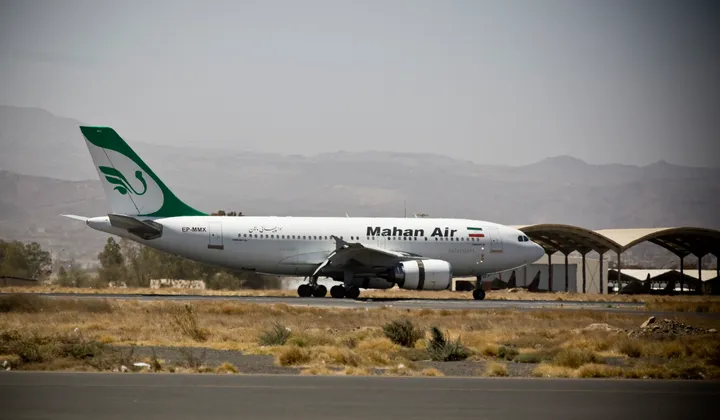On January 20, I called Kamal Bibi, an 18-year-old mother from a village in the Andar district of Ghazni, and asked about the situation under the new Taliban government. She was “happy,” she said, explaining that the war-ravaged district was finally at peace. Her happiness stemmed not only from peace, she told me, but also because of the international aid that her village had received for the first time in 18 years.
“Everyone is happy to receive aid due to the Taliban bringing peace to our village,” Kamal Bibi said. Puzzled by her response, I asked: “How are the Taliban so loved now by the people who feared them for so long?”
According to Bibi, the Taliban were generously distributing aid that they received from international NGOs to those identified by community elders as needy. The same Taliban had deprived this community of aid throughout the war.
This is not the first time rural communities like Bibi’s were deprived of aid.
In 1978, the Afghan communists seized power in a bloody coup against then-President Daud Khan. Soon after taking over, the communist government in the 1980s started distributing aid to poor rural areas, including Ghazni’s Andar district, to bolster support for the newly established government.
The aid included food and warm clothes, plus some educational programs to fight illiteracy. The aid, however, did not result in the improvement of society because it was shortly cut off by the alarmed forces of the anti-communist mujahideen.
Some rogue elements within the nascent yet determined rebels started attacking the aid providers and punishing the recipients—sometimes even killing them. While the mujahideen successfully halted access for the communist government, the blocking of aid by rogue elements deprived some communities of aid and education programs.
Then, when the mujahideen were in power from 1988 onwards in Andar district, they took control of international aid distribution—and won the hearts and minds of many who had previously detested them.
Aid deprivation under US occupation
Over the last two decades, the Taliban deprived various rural communities of international assistance in multiple ways. Its persistent fighting and attacks created an adverse environment for its distribution.
Aid workers were hit especially hard. At times they were caught in the crossfire; in other instances, they were intentionally targeted and sometimes brutally assaulted before being killed. In the deadliest cases, the Taliban even blamed aid workers for converting Muslims to Christianity.
When asked, the Taliban argued that the aid was illegitimate, as it came from invaders who installed a puppet government. Therefore, it worked to curtail the local population’s access to both government and international aid agencies, whom the Taliban widely viewed with suspicion.
The group used different tactics to this end. One was to stop people from receiving help from the former local government, NGOs and the international soldiers. For example, in 2006, a local doctor received a motorbike from the doctors’ union. When a local Taliban commander learned about it, he and his fighters initially plotted to kill the doctor on his way to the clinic.
Later, the Taliban leaders changed their mind, choosing instead to knock on the door of the doctor’s house to ask for his motorbike. When the Taliban did so, the doctor did not argue—or even ask why the Taliban were taking his motorbike, deciding instead to hand the motorbike over to the commander quietly.
In another instance, a religious leader was offered money from the US military for the renovation of an old mosque. Before accepting the money, the imam consulted a local Taliban group for their permission to receive the money, which they granted. However, when another group of Taliban leaders learned about the gift, they forced the imam to give the money to them instead.
The imam initially denied having received the money. This angered the fighters, who almost killed him. Later, the imam surrendered the funds, and the Taliban group left the area. This was not an isolated event. In several other villages, the Taliban took aid from the recipients to throw it away—and in some cases, even burnt it in public.
Eventually, aid organisations ended up sending aid to areas with little to no Taliban influence. The result was grim. Rural communities similar to Andar received barely any of the money allocated to them. In the last 18 years, these areas languished economically—communities were pushed into poverty and hatred towards the existing government was fomented.
The failure to render aid to local communities had far-reaching implications. It deepened the wedge between the former government and struggling local communities. In Andar, for example, the local population had little interaction with the existing government, first, because it was never popular. It then became even less so, because the Taliban systematically blocked the distribution of any kind of aid from 2004 onwards, making it look even more ineffective.
A 180-degree turn
Since taking over in August 2021, the Taliban appears to have had a change of heart on aid. In January, for instance, the Taliban government even proposed a joint body with international representatives to coordinate aid.
It is keen to use aid to earn some praise from the same community whose wellbeing it actively undermined for the last 18 years. As for the communities that have finally been able to receive aid, the past has been quickly forgotten. The Taliban is adored.
Can the Taliban continue to earn such good will? The current government will probably continue to be praised as long as it remains in control and continues to funnel even nominal amounts of aid to long-impoverished communities like that of Andar. The situation could change, especially if a breakaway faction from the Taliban starts an insurgency or a new militant group starts guerilla fighting against the government.
But for now, the Taliban is happy to play the role of the good guy. Until that changes, it will maintain its access to the hearts and minds of the neediest local communities across Afghanistan.























